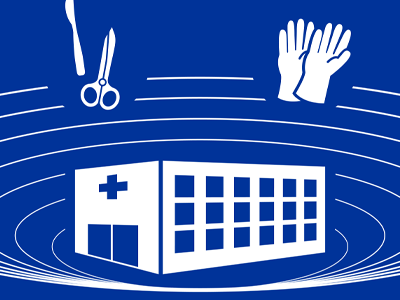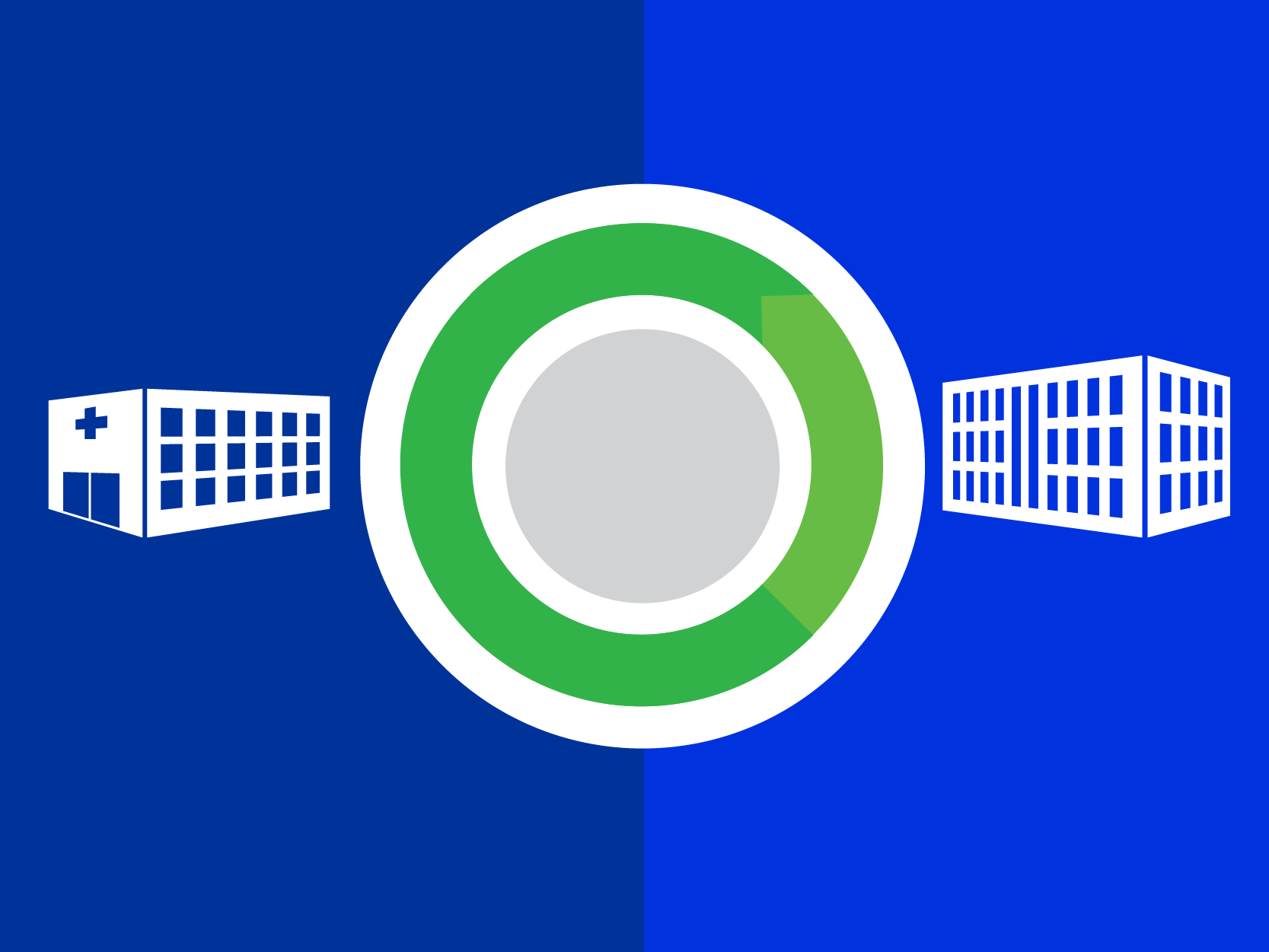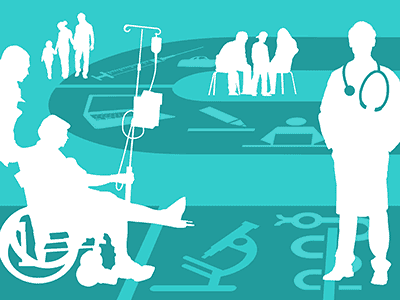Overview
Apply theories, tools and best practices needed to design circular products or services for hospitals and other healthcare organizations.
Developing or improving medical devices to ensure a continuous supply for an exponentially growing population is a critical factor in making healthcare more sustainable.
This course will help you to make the transition towards a circular economy and create value in the healthcare industry on the supplier side. It has wide applications – designers and engineers working for MedTech manufacturers and suppliers; as well as students, managers, industry reps, sales teams or policy makers – anyone interested in knowing more about what circular design entails and how to support the improvement of product development, how to steer teams or give guidance to relevant stakeholders.
This course uses an interdisciplinary approach to create sustainable solutions in the healthcare supply industry using circular economy principles. It includes business cases with examples of circular strategies presented by experts in the field.
After taking this course you will understand the fundamentals of the circular economy and urban mining. You will learn how to create supplier value with circular strategies such as reuse, maintenance, repair, remanufacturing, and recycling of medical devices.
You will also learn how to create or stimulate circular product and circular process design. Finally, you will identify entrepreneurial possibilities and smart solutions to create a circular proposal with recommendations for your organization.
This course is part of the program Circular Strategies for Sustainable Healthcare developed by TU Delft’s MedTech experts in close collaboration with industry and renowned institutes. These courses provide not only academic insights but also practical tools and examples which can be implemented in any healthcare organization, and can help you propose and develop your own circular solutions and programs.
Accredited Course
This course is accredited by the Dutch Association for Specialists in Sterile Medical Tools (VDSMH) and by the Dutch Association for Hospital Instrumentation Technicians (VZI). Verified learners who have successfully completed the course (or program) and obtained a certificate can claim accreditation points at one of the professional bodies they are members of.
What You'll Learn
- The basics of circular economy and how to translate circular approaches within your own context
- Define urban mining and identify recovery strategies from an industry perspective
- Classify different waste streams and determine how to use them
- Consider material properties and integrate these into the design of new products
- Develop a new circular product or process which limits or eliminates waste
Free e-book
In addition to 24/7 online access to video lectures and other course material, you will receive an electronic copy of the brand-new book 'Creating a Circular Healthcare Economy'. This book will further equip you to drive sustainable change and embrace circularity in the healthcare sector.
Details
Course Syllabus
Week 1: Fundamentals of the circular economy
In this week you will learn the fundamentals of the circular economy. Topics which we will cover this week are:
- The history and transfer from linear to circular
- The Butterfly Diagram as a system
- Corporate Social Responsibility Directive
- Trend towards reusing and recycling raw materials
Week 2: Applying circular strategies
In this week you will learn to apply circular approaches. Topics which we will cover this week are:
- Circular approaches as strategies.
- Maintenance, Reuse, Repair, Remanufacturing, Recycling
- Circular products and circular processes
- Translating the Butterfly Diagram into practical methods. Recycling of medical waste.
Week 3: Urban mining
Topics which we will cover this week are:
- Defining urban mining
- The advantages of urban mining
- Identify urban mining strategies
- Energy mining
- Energy transition.
Week 4: Waste streams
Topics which we will cover this week are:
- How to urban mine in different industries
- How to use recycled materials as raw material for new products
- Risks of contamination. Differences with household waste streams
- Materials and properties
- Testing methods: XRF, Tensile Testing
Week 5: Circular product and process design
Topics which we will cover this week are:
- Develop circular products and circular processes to limit or eliminate waste streams
- Material properties and integration into the design of new products, including using materials made from recycled resources
- Design for maintenance, design for repair, design for refurbishment, design for remanufacturing, design for recycling
- Modular and time-less design
- Design strategies to extend service-life from a mechanical perspective
Week 6: Creating a circular product or process proposal
Topics which we will cover this week are:
- How do I create a circular proposal?
- Validation criteria and determining them when creating a circular proposal
- Circular product design
- Circular process design
- How to write a circular proposal
- How to evaluate a circular proposal
Week 7: Closing week
In this week we will wrap-up and provide main takeaways as well as additional resources and information. Literature reviews and finding relevant publications were part of this course and we will provide you with more relevant literature on this topic.
Qualifications
Certificates
This course is offered on edX.org for free but a certificate is available for a fee.
Accredited Course
This course is accredited by the Dutch Association for Specialists in Sterile Medical Tools (VDSMH) and by the Dutch Association for Hospital Instrumentation Technicians (VZI). Verified learners who have successfully completed the course (or program) and obtained a certificate can claim accreditation points at one of the professional bodies they are members of.
How to request your points?
You can request accreditation points at one of the professional bodies mentioned above. You can do so by sending us an email indicating:
- Name and last name
- Name of the professional body
- Copy of the certificate
- User ID
The request must be sent within 2 weeks from the course completion.
Chartered Engineering Competences
All our online courses and programs have been matched to the competences determined by KIVI’s Competence Structure, a common frame of reference for everyone, across all disciplines, levels and roles.
These competences apply to this course:
- A1: Extend your theoretical knowledge of new and advancing technologies.
- B1: Identify potential projects and opportunities.
- E3: Undertake engineering activities in a way that contributes to sustainable development and a circular economy.
Admission
This is a Massive Open Online Course (MOOC) that runs on edX.
Prerequisites
- None


